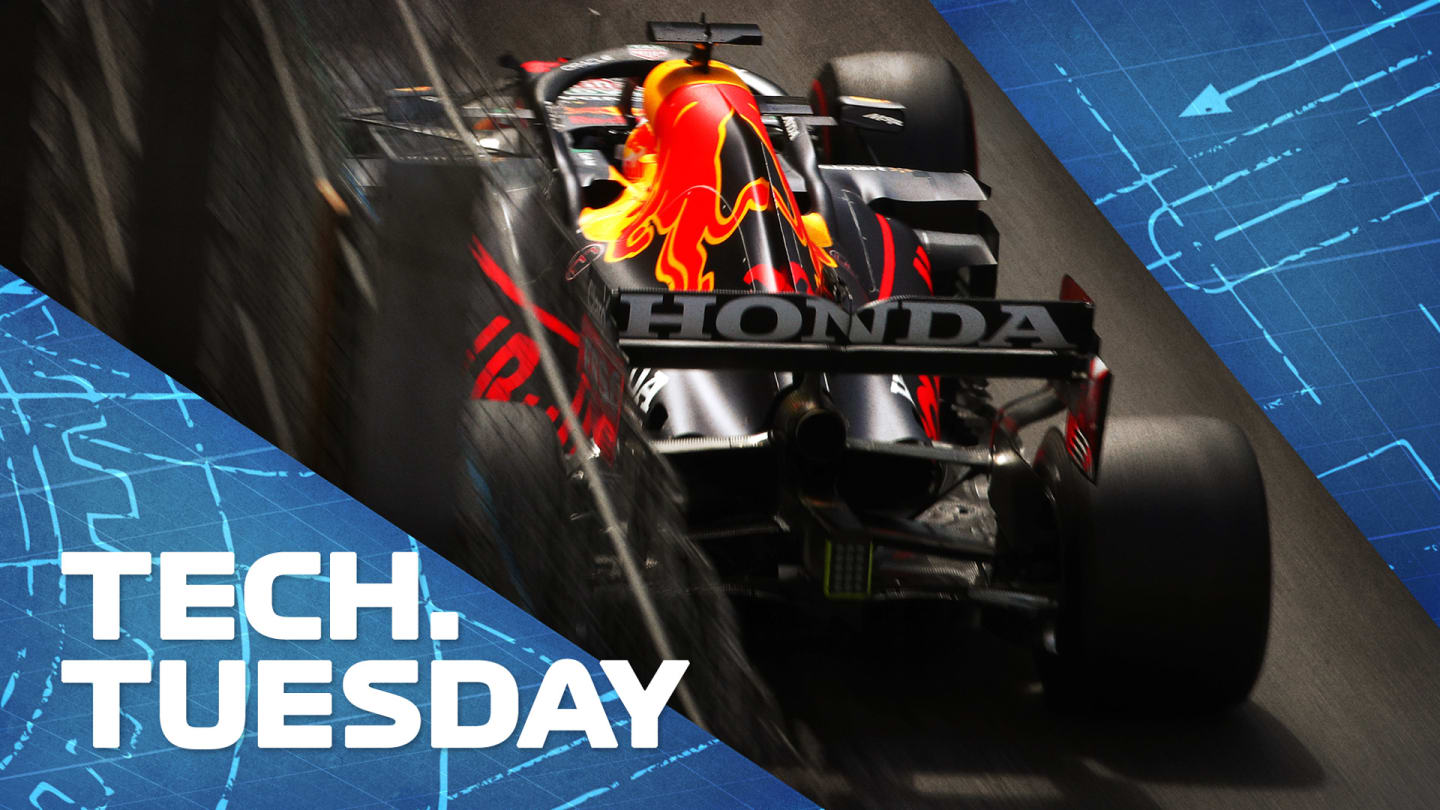
Technical
TECH TUESDAY: The rear wing choice Red Bull face for F1’s return to Baku

Share

Mark Hughes explains why the challenges of the Baku street circuit will bring the so-called 'flexi wings' debate into the spotlight this Azerbaijan Grand Prix weekend, with illustrations from Giorgio Piola.
Azerbaijan’s Baku circuit features the most contrasting layout of the season’s calendar. In terms of what it demands from the car, it’s an extreme compromise between the Monaco-like middle sector, which is all about slow corner performance – braking, rotation, traction, driveability – and the massive 1.4-mile flat-out stretch along the kinking ‘straight’ which finishes the lap and which also takes in part of sector one.
It’s a circuit that is asking for both Monaco and Monza wings, the two extremes of the season.
It is for this reason that the so-called ‘flexi wings’ controversy could be at its most heavily-loaded this weekend. For not only is this race the last one before the FIA’s new measuring protocol comes into effect, in France, but it’s also the track on which the biggest benefit could be gained from such a wing.
READ MORE: Flexi wings – What are they and why is everyone talking about them?
In Barcelona we saw Red Bull use their high-downforce wing (lower image, below) throughout Friday practice. It was the wing which best protected the vulnerable rear tyres by minimising the sliding which in turn better controlled their temperatures, which are always the defining problem around that circuit.
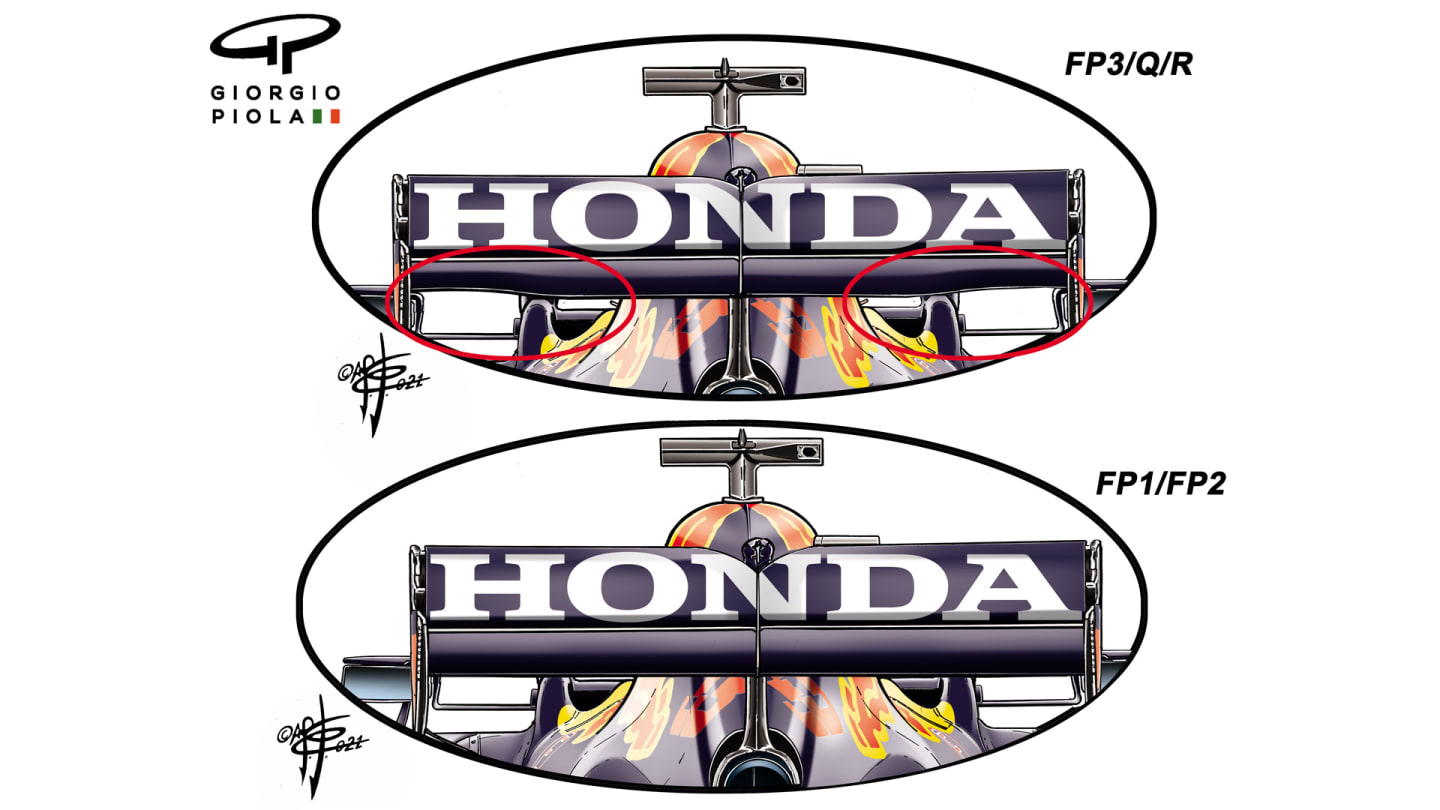
Top image: The 'spoon' wing | Bottom image: The high-downforce wing
But after looking at the numbers, Red Bull decided the high-downforce wing left them too vulnerable at the end of the straights to the faster Mercedes, which in general is a lower-drag car anyway.
So reluctantly, from Saturday, Red Bull switched to their ‘spoon’ wing (top image, above), with the outer sections of the underside cut away (circled in red, above).
The outboard ends of the wing are the most drag-inducing part so cutting them away is the most aero-efficient way of reducing a wing’s drag with the least cost in downforce.
But rearward-facing on-board cameras appeared to show that this particular wing displayed a further drag-reducing benefit – in that it moved downwards and back beyond a certain speed threshold as the aerodynamic forces acting upon it became high enough to reveal this trait.
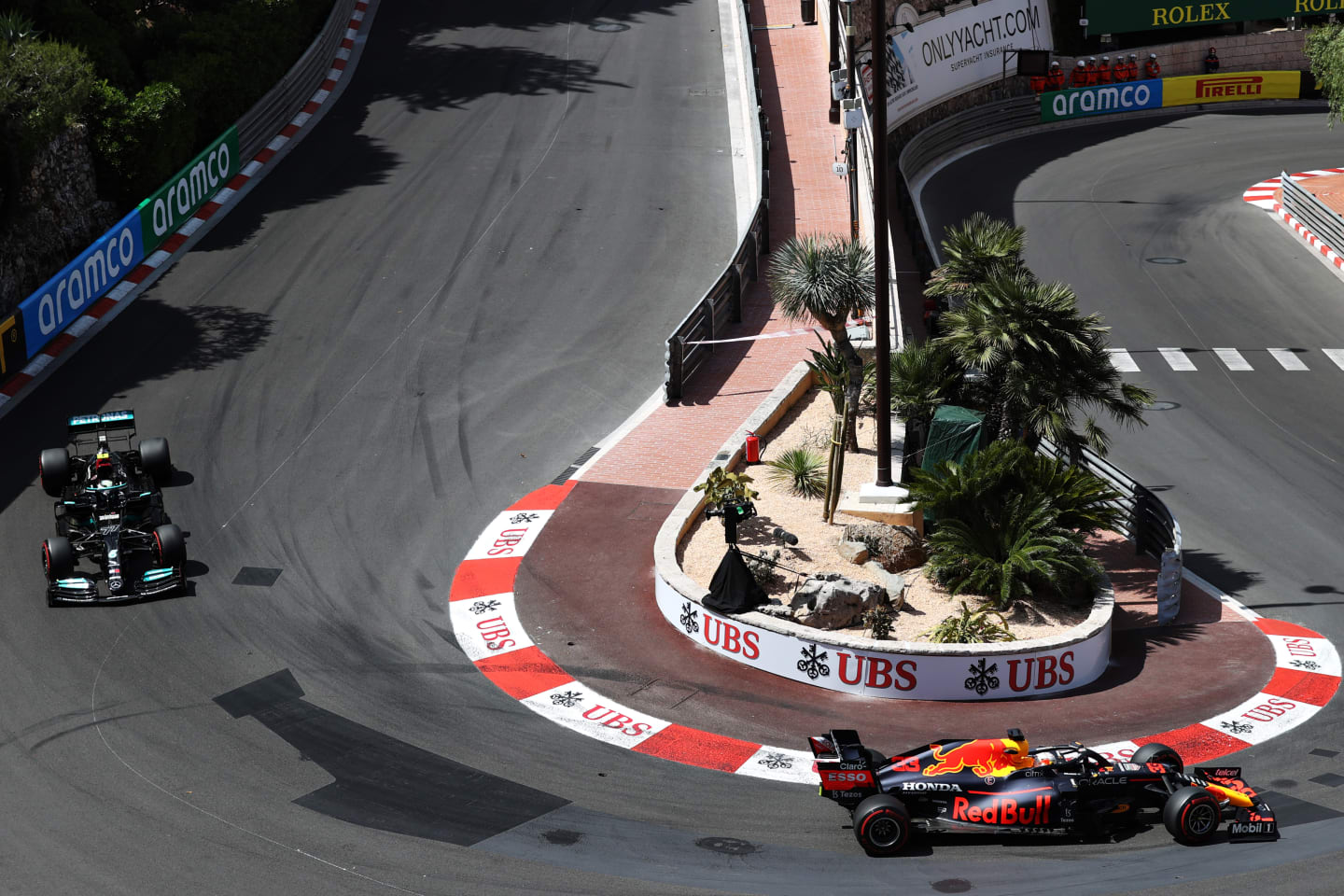
The middle sector of Baku is said to be 'Monaco like'
The Red Bull wing passed all the FIA static load test requirements but Mercedes boss Toto Wolff has suggested that there may be protests if Red Bull – or any other team – choose to run such a wing at Baku.
The reduction in lap time the flexing might give around a conventional track would be slight, but around Baku with that long straight – the longest stretch of flat-out running the cars see all year – it could be worth a more significant chunk.
Especially as the drag-dumping effect of the flex could allow you to run a higher wing angle that will pay back in the Monaco-like middle sector (which comprises over 40% of the lap).
READ MORE: Why there's more to Red Bull's 2021 pace than the regulation changes
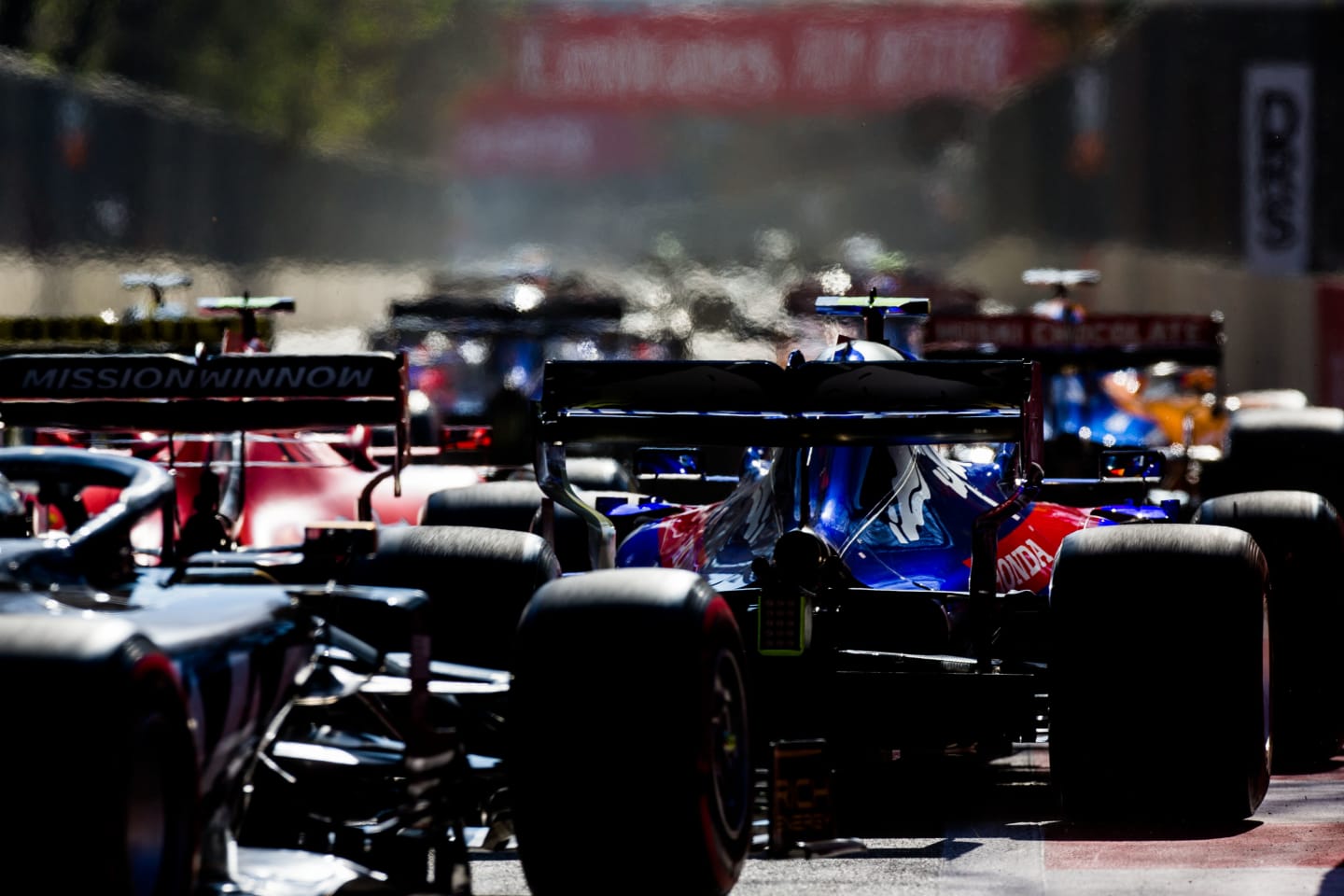
Thanks to Baku's long straights, wing settings could make a huge difference this weekend
The Red Bull’s high-rake concept is inherently draggier than the low-rake of the Mercedes and typically this season the Mercedes has been faster through the speed traps.
READ MORE: Have the 2021 rule changes swung the advantage from Mercedes to Red Bull?
The motivation for Red Bull to attack that weakness of their car is very obvious, in that such a wing would probably bring more lap time gain on the Red Bull than it would on a Mercedes as there is more drag to be dumped.
Historically at Baku, Red Bull have favoured a low-drag approach. But generically a high-downforce wing which prioritises the slow corner performance can also work here, with a very similar lap time delivered in a different way.
So it could be that Red Bull prefer their high-downforce wing anyway, especially if it gives significantly better tyre performance. But the interest around their choice is sure to be intense.
YOU MIGHT ALSO LIKE
Feature 5 Ferrari moves that paid off – and 5 that didn’t – as Hamilton embarks on his new chapter
Feature Key Lewis Hamilton questions answered as the seven-time champion moves to Ferrari
Report Jarno Opmeer and Bari Broumand take victory in Rounds 2 and 3 of 2025 F1 Sim Racing World Championship
News 'The show goes on' – Horner insists Red Bull have ‘strength and depth’ to cope with Newey and Wheatley departures
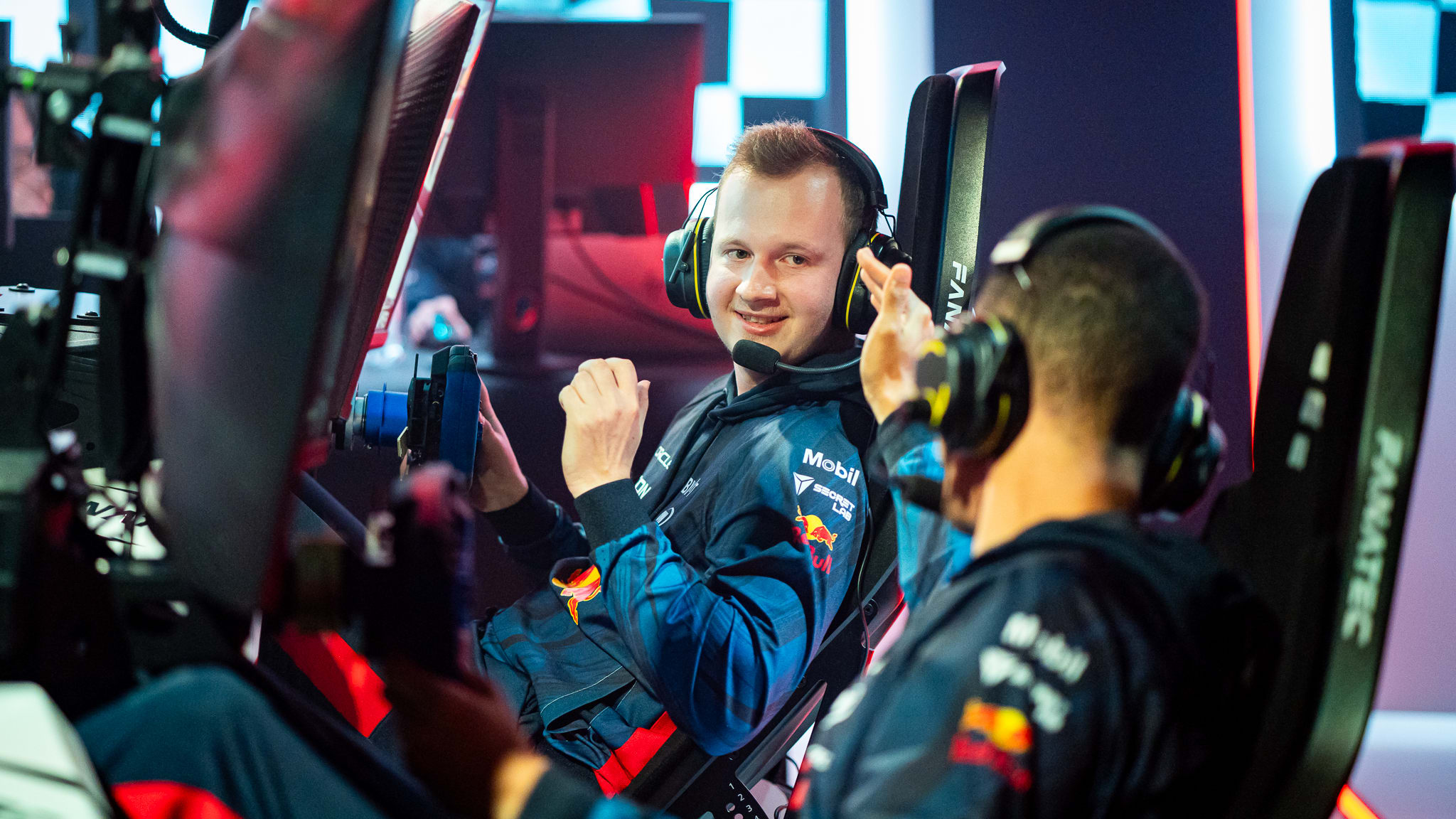
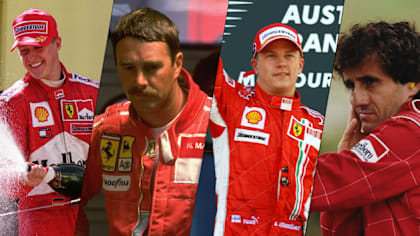
)

)